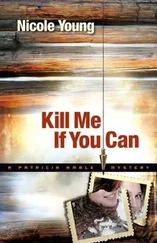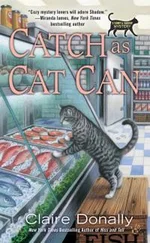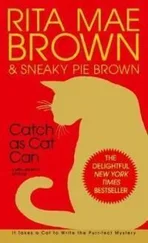I stayed overnight at a motel used by flight crews of several airlines, stung the inn with a $100 bum check when I left in the morning and deadheaded to San Francisco immediately. It was a procedural pattern I followed, with variations, for the next two years. Modus operandi, the cops call it.
Mine was a ready-made scam, one for which the airlines, motels and hotels set themselves up. The hotels and motels around metropolitan or international airports considered it just good business, of course, when they entered into agreements with as many airlines as possible to house transit flight crews. It assured the hostelries of at least a minimum rate of occupancy, and no doubt most of the operators felt the presence of the pilots and stewardesses would attract other travelers seeking lodging. The airlines considered it a desirable arrangement because the carriers were guaranteed room space for their flight crews, even during conventions and other festive affairs when rooms were at a premium. I know from numerous conversations on the subject that the flight crews liked the plan whereby the airlines were billed directly for lodging and allotted meals. It simplified their expense-account bookkeeping.
The deadheading arrangement between airlines everywhere in the world was also a system based on good business practices. It was more than a courtesy. It afforded a maximum of mobility for pilots and co-pilots needed in emergency or essential situations.
However, supervision, auditing or other watchdog procedures concerning the agreements and arrangements were patently, at least during that period, lax, sloppy or nonexistent. Airport security, understandably, was minimal at the time. Terrorist raids on terminals and plane hijackings were yet to become the vogue. Airports, small cities that they are in themselves, had a low crime ratio, with theft the common problem.
No one, apparently, save under extreme circumstances, ever went behind the pink “jump” forms and checked out the requesting pilot’s bona fides. The deadheading form consisted of an original and two copies. I was given the original as a boarding pass and I gave that to the stewardess in charge of boarding. I knew the operations clerk always called the FAA tower to inform the tower operators that such-and-such flight would have a jump passenger aboard, but I didn’t know that a copy of the pink pass was given the FAA. Presumably, the third copy was kept in the operations files of the particular airline. An airline official who made a statement to police concerning my escapades offered what seemed to him a logical explanation:
“You simply don’t expect a man in a pilot’s uniform, with proper credentials and obvious knowledge of jump procedures, to be an impostor, dammit!”
But I have always suspected that the majority of the jump forms I filled out ended up in the trash, original and both copies.
There were other factors, too, that weighed the odds in my favor. I was not at first a big operator. I limited the checks I cashed at motels, hotels and airline counters to $100, and not infrequently I was told there wasn’t enough cash on hand to handle a check for more than $50 or $75. It always took several days for one of my worthless checks to traverse the clearing-house routes to New York, and by the time the check was returned stamped “insufficient funds,” I was a long time gone. The fact that I had a legitimate (on the face of it, at least) account had a bearing on my success also. The bank didn’t return my checks with the notation “worthless,” “fraudulent” or “forgery.” They merely sent them back marked “insufficient funds to cover.”
Airlines and hostelries do a volume business by check. Most of the checks returned to them because of insufficient funds aren’t attempts to defraud. It’s usually a bad case of the shorts on the part of the people who tendered the checks. In most instances, such persons are located and their checks are made good. In many cases involving checks I passed, the checks were first placed for collection before any attempt to locate me was made through Pan Am. In many other instances, I’m sure, the victimized business simply wrote off the loss and didn’t pursue the matter.
Those who did usually turned the matter over to local police, which further aided and abetted me. Very few police departments, if any, have a hot-check division or bunco squad that is adequately staffed, not even metropolitan forces.
And no detective on any police force is burdened with a case load heavier than the officer assigned to the check-fraud detail. Fraudulent check swindles are the most common of crimes, and the professional paperhanger is the wiliest of criminals, the hardest to nab. That’s true today and it was true then, and it’s no reflection on the abilities or determination of the officers involved. Their success ratio is admirable when you consider the number of complaints they handle daily. Such policemen usually work on priorities. Say a team of detectives is working on a bum-check operation involving phony payroll checks that’s bilking local merchants of $10,000 weekly, obviously the handiwork of a ring. They also have a complaint from a jeweler who lost a $3,000 ring to a hot-check artist. And one from a banker whose bank cashed a $7,500 counterfeit cashier’s check. Plus a few dozen cases involving resident forgers. Now they’re handed a complaint from a motel manager who says he lost $100 to a con artist posing as an airline pilot. The offense occurred two weeks past.
So what do the detectives do? They make the routine gestures, that’s what. They ascertain the man’s New York address is a phony. They learn Pan Am has no such pilot on its payroll. Maybe they go so far as to determine the impostor bilked the one airline out of a free ride to Chicago, Detroit, Philadelphia, Los Angeles or some other distant point. They put a message to whichever city is appropriate on the police teletype and pigeonhole the complaint for possible future reference, that’s what they do. They’ve done as much as they could.
And like the bumblebee, I kept flying and making honey on the side.
So it’s not too amazing that I could operate so freely and brazenly when you consider the last two factors in my hypothesis. The National Crime Information Center (NCIC) did not exist as a police tool during the period. Had I had to contend with the computerized police link, with its vast and awesome reservoir of criminal facts and figures, my career would probably have been shortened by years. And lastly, I was pioneering a scam that was so implausible, so seemingly impossible and so brass-balled blatant that it worked.
In the last months of my adventures, I ran into a Continental captain with whom I had deadheaded a couple of times. It was a tense moment for me, but he dispelled it with the warmth of his greeting. Then he laughed and said, “You know, Frank, I was talking to a Delta stewardess a couple of months ago and she said you were a phony. I told her that was bullshit, that you’d handled the controls of my bird. What’d you do to that girl, boy, kick her out of bed?”
My adventures. The first few years that’s exactly what they were for me, adventures. Adventures in crime, of course, but adventures nonetheless.
I kept a notebook, a surreptitious journal in which I jotted down phrases, technical data, miscellaneous information, names, dates, places, telephone numbers, thoughts and a collection of other data I thought was necessary or might prove helpful.
It was a combination log, textbook, little black book, diary and airline bible, and the longer I operated, the thicker it became with entries. One of the first notations in the notebook is “glide scopes.” The term was mentioned on my second deadhead flight and I jotted it down as a reminder to learn what it meant. Glide scopes are runway approach lights used as landing guides. The journal is crammed with all sorts of trivia that was invaluable to me in my sham role. If you’re impersonating a pilot it helps to know things like the fuel consumption of a 707 in flight (2,000 gallons an hour), that planes flying west maintain altitudes at even-numbered levels (20,000 feet, 24,000 feet, etc.) while east-bound planes fly at odd-numbered altitudes (19,000 feet, 27,000 feet, etc.), or that all airports are identified by code (LAX, Los Angeles; JFK or LGA, New York, etc.).
Читать дальше











